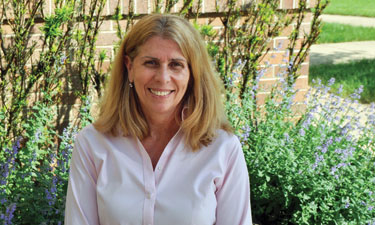 Last year at Congress, when NRPA’s marketing and communications director, Lauren Hoffmann, led a session on NRPA’s three pillars, the audience struggled most with social equity. There was no consensus on what social equity for parks meant, and the attendees agreed only that social equity was difficult to define and realize across the broad spectrum of park and recreation programming and services. Most everyone agreed with the critical need to implement social equity principles for parks, but when we looked at what was available to the field and through traditional education curricula, much of the content was theoretical and not practical in execution.
Last year at Congress, when NRPA’s marketing and communications director, Lauren Hoffmann, led a session on NRPA’s three pillars, the audience struggled most with social equity. There was no consensus on what social equity for parks meant, and the attendees agreed only that social equity was difficult to define and realize across the broad spectrum of park and recreation programming and services. Most everyone agreed with the critical need to implement social equity principles for parks, but when we looked at what was available to the field and through traditional education curricula, much of the content was theoretical and not practical in execution.
This issue of Parks & Recreation Magazine, the Social Equity issue, tackles the real and present need for park and recreation agencies to move forward with programs, principles and practices designed to uphold not just the rhetoric of such a movement, but the day-to-day actions needed to establish, strengthen and promote equality for all people in our communities.
Baltimore Mayor Stephanie Rawlings-Blake steps forward in the cover story, speaking directly to the questions surrounding social equity concerns facing urban communities, in an interview by NRPA’s VP for Urban and Government Affairs, Kevin O’Hara. Mayor Rawlings-Blake is making great progress on social equity issues by working with Baltimore’s Park and Recreation director, Ernest Burkeen Jr., through efforts targeting the city’s most vulnerable and underserved community members.
It is a rare day that passes when parks are not in the news in New York. Home to Central Park, Prospect Park and The High Line, New York City also maintains more than 25,000 additional acres of parkland. NRPA’s VP of Conservation and Parks, Rich Dolesh, drills down on the issues of social equity in New York’s parks in his story on the unexpected “Equity in Parks” legislation proposed earlier this year, which would claw back 20 percent of private donations from nonprofit conservancies that run some of the most iconic and well-known New York parks.
Not long ago, I had the privilege of interviewing civil rights attorney and founder of The City Project, Robert Garcia. He speaks openly and passionately about the need for social and environmental justice in regards to parks and recreation. Garcia, a keynote speaker at NRPA’s upcoming 2014 Congress, never loses faith that social equity goals can be achieved. “Success can be slow to realize,” he states, “but the struggle behind this cause is worth the outcome.”
NRPA’s CEO, Barbara Tulipane, recently stated, “Social equity may be one of the most important things public park and recreation agencies provide to the public they serve.” We hope the Social Equity issue will raise these concerns and stimulate a needed discussion on this topic.
Gina Mullins-Cohen is NRPA’s Vice President of Marketing, Communications and Publishing and the Editorial Director of Parks & Recreation Magazine.

